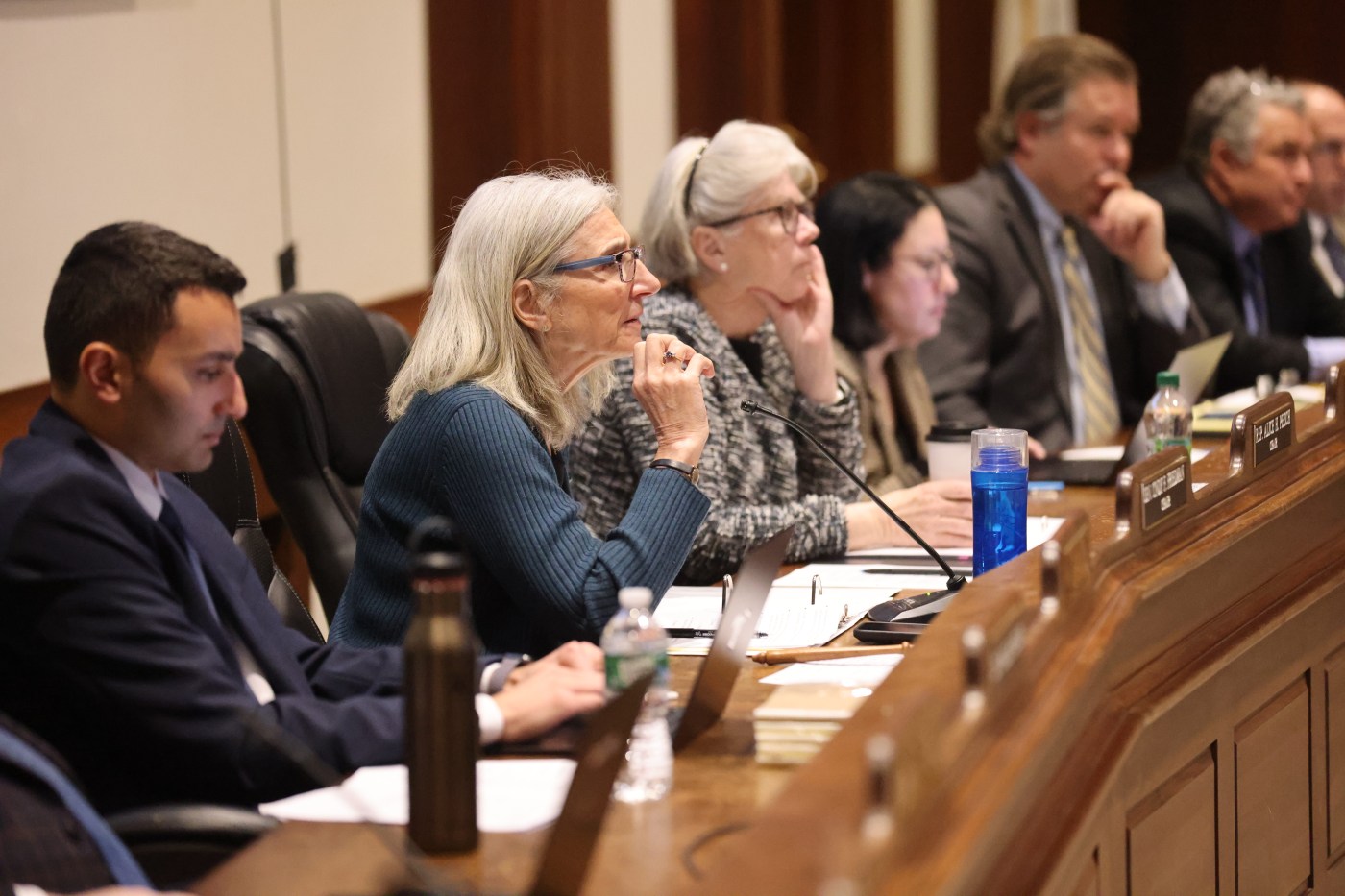
Battle over minimum wage for tipped workers creates tense moments on Beacon Hill
A battle over raising the minimum wage for tipped workers played out on Beacon Hill Tuesday when dueling groups lobbied lawmakers on a proposal that advocates say is necessary to guarantee livable wages and an industry group warned could increase costs for restaurants.
The initiative sparked some skepticism from lawmakers tasked with reviewing a pile of questions that could land before voters in November. It also received passionate testimony from supporters who cast it as a way to offer employees more agency in a state with a high cost of living.
Saru Jayaraman, president of One Fair Wage, the advocacy group behind the proposal, said “several hundred” restaurants in Massachusetts already offer the $15 minimum wage to workers with tips on top instead of the subminimum wage of $6.75 an hour.
“They are saying we cannot do it alone. We need policy that will create a level playing field and bring workers back to work in this industry because we are facing the worst staffing crisis in the history of this industry,” Jayaraman said ahead of a hearing at the State House.
But an opposition group led by the Massachusetts Restaurant Association and Doug Bacon, the head of Red Paint Hospitality Group, argued an increase in wages will lead to higher costs of doing business in an industry with an already slim profit margin.
Massachusetts Restaurant Association President Stephen Clark said servers and bartenders “do not need to be saved.”
“They have bought houses. They have educated their children. They have carved out a living on tips. And activists from out of state want to take those tips and redistribute them to other people throughout the restaurant. It’s not one fair wage, it’s one lower wage,” he said.
Both sides held press conferences outside the State House before a legislative hearing on the potential ballot measure. The two events at one point clashed, with opponents marching across Beacon Street chanting “save our tips” as members of One Fair Wage were still speaking.
Two opponents of the tipped workers initiative even stood behind supporters who were talking to the media, a move that led one man to repeatedly call the two opponents “thugs.”
The proposal pushed by One Fair Wage would gradually increase the minimum hourly wage for tipped workers over five years, with employees making 100% of the state’s minimum wage by Jan. 1, 2029.
Employers would need to continue to pay the difference between subminimum wage and the total amount a tipped worker makes through the end of 2028.
The ballot question also says an employer “may require” wait staff, service employers, or bartenders to participate in a tip pool among all workers at the business, including non-tipped workers.
The tip pool language has drawn fierce opposition from the Massachusetts Restaurant Association, which adopted “save our tips” as its campaign slogan.
But Jayaraman accused the Massachusetts Restaurant Association of spreading “very leading and misleading information and questions that lead workers to believe that somehow their tips are being taken away.”
Sen. Cindy Friedman, who chairs the committee charged with reviewing potential ballot questions, also picked up on the slogan, telling Bacon she was “a little confused” by messaging from the restaurant industry that tips will go away if the proposal is approved.
“Nothing in this proposal is having tips go away,” the Arlington Democrat said. “Is the issue that you the restaurateur will be making less money, and therefore that will be the issue with your business model, which I mean is a perfectly legitimate worry, but is that what’s going on?”
Bacon said he is concerned about costs increasing for restaurant owners and argued the minimum wage in Massachusetts will eventually hit $20 an hour in five years.
“I can tell you with 100% certainty that no operator can absorb a 200% increase in the cost of having a server or a bartender. So we’re going to raise our prices or change our staffing and our business model,” he said.
Rep. Michael Day said he was “struggling” with the relationship between phasing out the subminimum wage and allowing restaurants to “require” tip pools that include non-tipped workers.
“I don’t have any final positions on any of this stuff right now. But this is one of the questions I’m wrestling with this particular proposal, is that it seems to be hitting two different questions,” he told the Herald.
Sen. Ryan Fattman, a Republican from Sutton, said he is concerned how raising the subminimum wage could impact the bottom line of restaurants in the rural or non-suburban areas he represents.
“I’d probably vote no if it gets to the ballot,” Fattman told the Herald. “I think the system that is currently in place, especially with all the challenges that the industry has faced over the last few years with COVID, shouldn’t be changed.”


